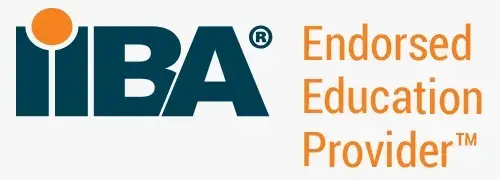Business analysis is a popular and rewarding career choice that involves analyzing business processes, identifying problems, and recommending solutions to improve business performance. Many individuals are interested in pursuing a career in this field, but they often wonder if they can become a business analyst if they don’t have any prior experience or as a fresher?
In this guide, we provide you all the details and step by step roadmap to help you become a Business Analyst.
Keep on reading for insightful learning!
Enrolling in an ECBA certification course can be an excellent starting point to gain foundational knowledge and skills for this role.
Skills required for Fresher Business Analyst
We, at Techcanvass, have developed the CRAFT framework to group the skills of a Business Analyst.
![Skills-Framework]()
Business Analyst Skills Framework (CRAFT) For Entry-Level Business Analyst
Here are the four key skills needed to become a Business Analyst:
- Soft Skills
- Core Business Analysis Skills
- Domain Knowledge
- Functional Testing Skills
Let’s understand the skills in detail.
1. Soft Skills Required For Entry-Level Business Analyst
A business analyst works closely with the stakeholders. BA elicits and confirms the requirements with the business users. BA also communicates the requirements to the technology team.
The soft skills needed to perform these tasks effectively, a BA needs to be good at:
- Interaction skills
- Presentation skills
- Communication skills
2. Core BA Skills For Fresher
Then come your core BA skills - the fundamental skills of a business analyst. You can call them technical skills as here you need to learn skills related to requirements elicitation, analysis and modelling.
The top and trending skills in this category are:
- Elicitation techniques like Interviews etc.
- User Stories and Use cases
- Process Analysis and Modelling
- Writing Requirements
- Verification and Validation
- Agile and Waterfall approaches etc
Business analysis tools also play an important role in a Business analyst’s career. Tools provide an efficient way to create visual diagrams. Some of the tools, which need to be learnt are
- MS-Visio or Draw.io for UML diagrams
- Pencil or Proto.io for prototyping
- Jira for requirements management
3. Functional Knowledge Required as a Beginner Business Analyst
Functional knowledge is not necessarily an entry-level skill but you have to pick it up at some point in time in your business analysis career. It refers to the knowledge of the industry and the business as a whole.
To illustrate, suppose you are involved in a banking project. It is essential to have a comprehensive understanding of the fundamental terminologies, concepts, and processes. Possessing functional knowledge can enable you, as a business analyst, to comprehend the project requirements more effectively, resulting in better outcomes.
4. Functional Testing Required as a Beginner Business Analyst
A business analyst has the responsibility to validate the software before it is given to the customer for User Acceptance Testing (UAT). For this, you need to have the ability to test the software from overall functionality perspective.
For example, as a business analyst you need to check if money is actually getting transferred when a bank customer uses the 'funds transfer function’ in a banking software.
Techcanvass offers domain training courses that you can take advantage of to enhance your skills.
Steps to become a Business Analyst with no experience
Lets understand the steps required to be completed to become a Business Analyst without any experience:
- Understand the role of a Business Analyst
- Acquire the required qualifications
- Develop the necessary skills
- Gain practical experience
- Take relevant courses
- Transform your resume
- Prepare for Interview
Step 1: Understand the role of a Business Analyst as a Beginner Business Analyst
Before you start, it is important to understand the role of a business analyst. A business analyst is responsible for analyzing business operations, identifying problems and opportunities, and recommending solutions to improve efficiency and productivity. They work with stakeholders, gather requirements, and facilitate communication between different departments.
Step 2: Acquire the required qualifications as a Fresher
Although it is possible to become a business analyst without a degree, having a degree in a relevant field like Information technology, computer science, or engineering will increase your chances of success.
However, relevant certification can also demonstrate your skills and knowledge in the field. Since you are a fresher, you can opt for the ECBA Certification as it is designed for entry-level professionals.
Step3: Develop the necessary skills required for Beginner Business Analyst
We have provided details of all the skills needed to become a Business Analyst. Check the “Skills required for Business Analysis” section in this guide.
You can acquire the skills by attending a Business Analyst certification program from a reputed training Institute.
Techcanvass offers a Entry level Business Analyst training program (with ECBA Certification).
Step 4: Gain practical experience - Join Internships for Freshers in Business Analysis
While it may seem difficult to get a job without experience, there are ways to gain practical experience. You can start by working on personal projects, or doing internship. Internship provides you valuable experience of working in a real-life project.
Even if the remuneration is not very attractive, the experience gained is valuable, which will also help you in strengthening your profile.
Step 5: Resume Tips for Freshers in Business Analysis
Another important step if you want to start as a business analyst is to transform your resume. So if you're looking to land a job as a Business Analyst, you need to make sure your resume stands out.
One way to do this is by incorporating relevant keywords that match the skills and qualifications that hiring managers are looking for. Here are some tips on how to transform your resume for a Business Analyst role by adding keywords:
- Review the job description: Take a close look at the job posting and make note of the keywords and phrases used to describe the responsibilities and qualifications.
- Use industry-specific terms: Make sure to include industry-specific terms that showcase your knowledge and expertise.
- Highlight your technical skills: Business analysts require technical skills, so it's important to include any relevant technical keywords in your resume.
- Use action verbs: Begin with bullet points in your resume with strong action verbs to highlight your accomplishments.
- Include transferable skills: Even if you don't have direct experience in business analysis, you likely have transferable skills that can be applied to the role. Keywords like problem-solving, project management, and communication are all valuable skills for a business analyst.
Step 6: Fresher Business Analyst Interview Preparation
It all comes down to cracking the job interview. The business analyst interviews, these days, test you on multiple aspects. The types of questions asked are from the following categories:
- Questions related to your project
- Core Business Analysis Skills
- Behavioural Questions (Scenario and situation-based questions)
Prepare well for the interviews so that you can crack the interview and achieve your goal.
Conclusion
Being a business analyst is a promising career path. We hope that this article will help you understand – what does it take to become a Business Analyst.
If you are motivated enough to start your business analysis journey, then the first step that you can take is to opt for an ECBA Certification training course, which will help you to learn all the core business analysis skills and also enable you to get ECBA certified.
If you would like to know more or speak to our experts, do let us know by letting us know the following details:



